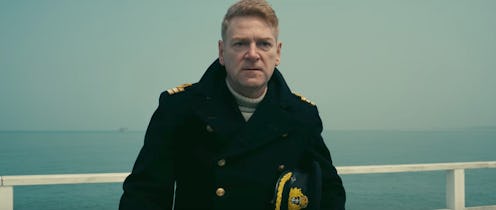
Get ready to be dropped into WWII. When Christopher Nolan set out to make his new film Dunkirk, about the Battle of Dunkirk in 1940, his goal was to create a fully immersive experience, but just how accurate is Dunkirk? Well, it depends on how you judge historical accuracy, because while, obviously, Nolan's film is based on real events, it does take some liberties in bringing them to the screen.
The massive and chaotic evacuation of over 330,000 British and Allied troops from the beaches of Dunkirk, France, was a very real and crucial moment in WWII. At the time, Allied forces were essentially backed into a corner in Dunkirk, surrounded by the Germans, and the British army even considered surrender. The British were faced with two choices, surrender or die in combat, and it was this conflict that inspired Nolan to make the film.
"The fact the story ended with neither annihilation nor surrender makes it one of the greatest stories in human history," the director told The Associated Press, via The Seattle Times. With so many soldiers and lives affected by the events of Dunkirk, Nolan made the decision not to base any of his three main characters on real people. Instead, the writer-director chose to focus on creating an immersive experience using camera angles and elaborate set pieces (including real WWII-era planes).
Though the characters in Dunkirk are fictional, Nolan's research for the film included speaking directly to veterans, many of whom had varied accounts and perspectives of the experience. "With so many people involved — 400,000 people on a beach, give or take — you discover a lot of radically different experiences," Nolan wrote in The Telegraph. "You find order, but you also find chaos. You find nobility, but also cowardice."
With all these differing accounts of history, one wonders, is there even an accurate version of events to be begin with? Yes, the basic facts — time, dates, war — remain true, but the experience of soldiers on the ground will never be singular. As such, Dunkirk is more accurate to the suspense and emotion of the situation than any specific story. "What we decided to do was to really try and live in the moment of the experience... the very immediate and human desire to survive," Nolan told The AP. "We wanted to tackle that and make what I refer to as a very present tense narrative where you're in the moment with these characters."
I think I speak for all of us when I say that I'll live in any moment of Dunkirk as long as cast members like Harry Styles are there.